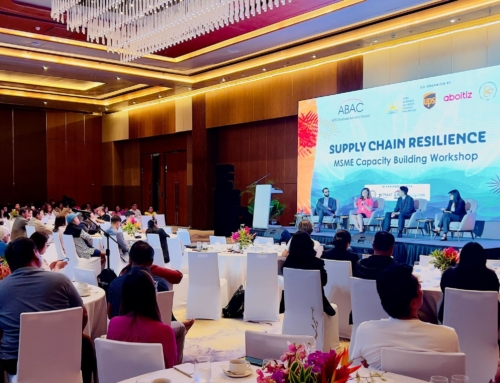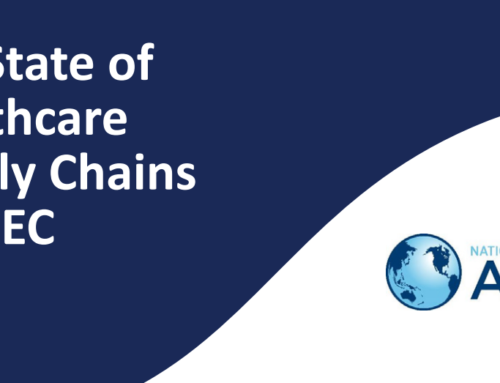ABAC AI Report
The APEC Business Advisory Council (ABAC) launched a report on Artificial Intelligence (AI) at the APEC CEO Dialogues this November. The report is now available online at www.ncapec.org/ai-report.
The report demonstrates how AI is being adopted in APEC economies in a variety of industries and sectors and provides recommendations for policy makers to advance AI adoption for economic and sustainable growth.
Case Studies
The report’s 13 case studies demonstrate the potential of AI that extends beyond its economic benefits like tackling complex issues such as poverty, inequality, climate change, as well as ways to cope with the pandemic. From automated health diagnostics in hospitals to smart recruitment processes in companies, AI is creating unprecedented products, services and occupations that will contribute to the post-COVID-19 economic recovery.
In one case study, a team of engineers at a university in the Philippines developed a prototype brain-computer typing interface to help patients suffering from locked-in syndrome (LIS) to communicate with the world. In another example, a Japanese corporation used AI to improve the efficiency of farming, automatically aggregating and analyzing sensor data and satellite images to provide farmers with farm management recommendations. A New Zealand company has developed AI-powered crocodile-spotting drones to keep swimmers safe in Australian rivers. These are just a few examples of the case studies outlined in the report, which come from fourteen APEC economies and various sectors, including healthcare, logistics, financial services, agriculture and others.
To explore the report’s case studies visit the Case Studies section of the AI Report website.
Policy Recommendations
The report also lists domestic strategies for AI usage and shows that most APEC member economies already have a plan, policy or program devoted to driving or supporting AI ecosystems. While domestic approaches might differ, economies generally strive to stimulate AI development to the benefit of their economy. The business community suggests that the region’s economies could do even more to fully enable AI and the next engine of economic and social growth. To advance AI in the region, ABAC recommends that APEC works to:
- Include AI as part of the broader APEC economic agenda
- Build trust in AI
- Introduce supportive policy frameworks for AI
- Improve regulatory coherence and international cooperation
- Prepare jobs and skills for the transformation of AI
- Create opportunity from the COVID-19 economic recovery
By adopting these strategic recommendations, the region’s leaders can harness AI and create thriving economies in the medium and long term. At the core of this is the recognition of AI as a central component of any economy’s forward-looking policy for growth, productivity and job creation. Too often policymakers view AI as only a tech industry issue, which fails to grasp AI’s broader economic role.
As we see greater AI adoption and innovation, policymakers will need to draft new laws, revise existing laws, confront new questions, address new needs and reassess AI’s impact. We have an important opportunity to ensure that AI policymaking allows the region to capture the massive opportunities presented, in ways that increase the region’s competitiveness and facilitate regional integration. We must work constructively alongside a multitude of stakeholders to elevate AI’s position in APEC’s agenda.






